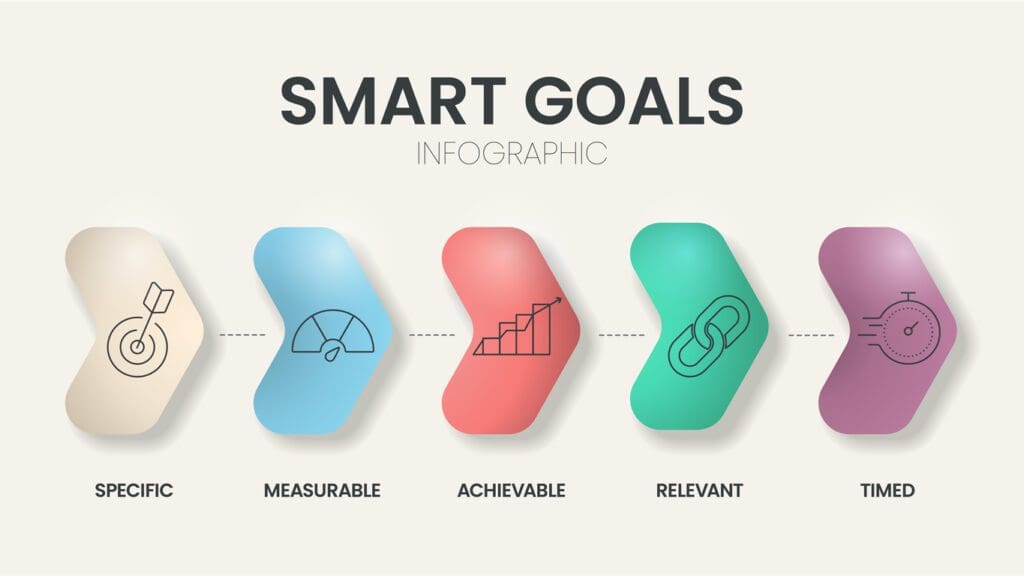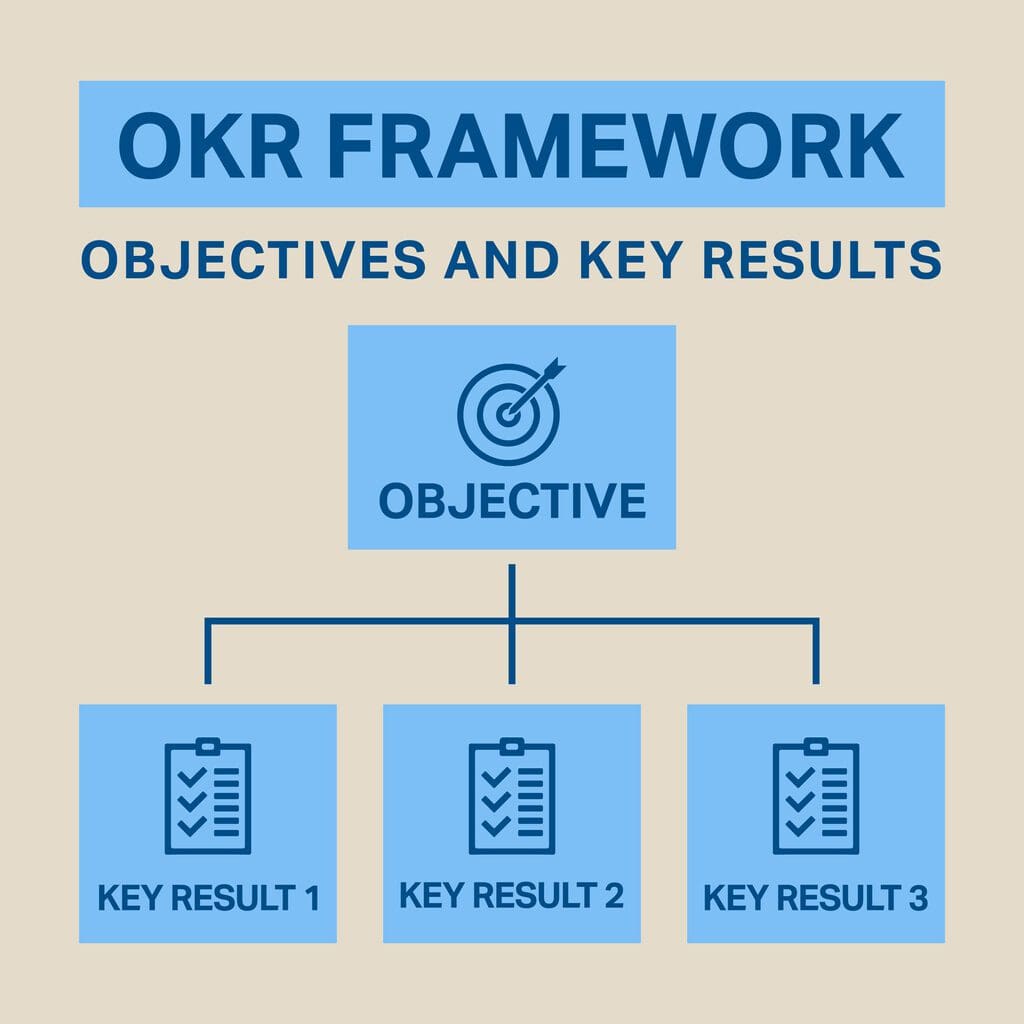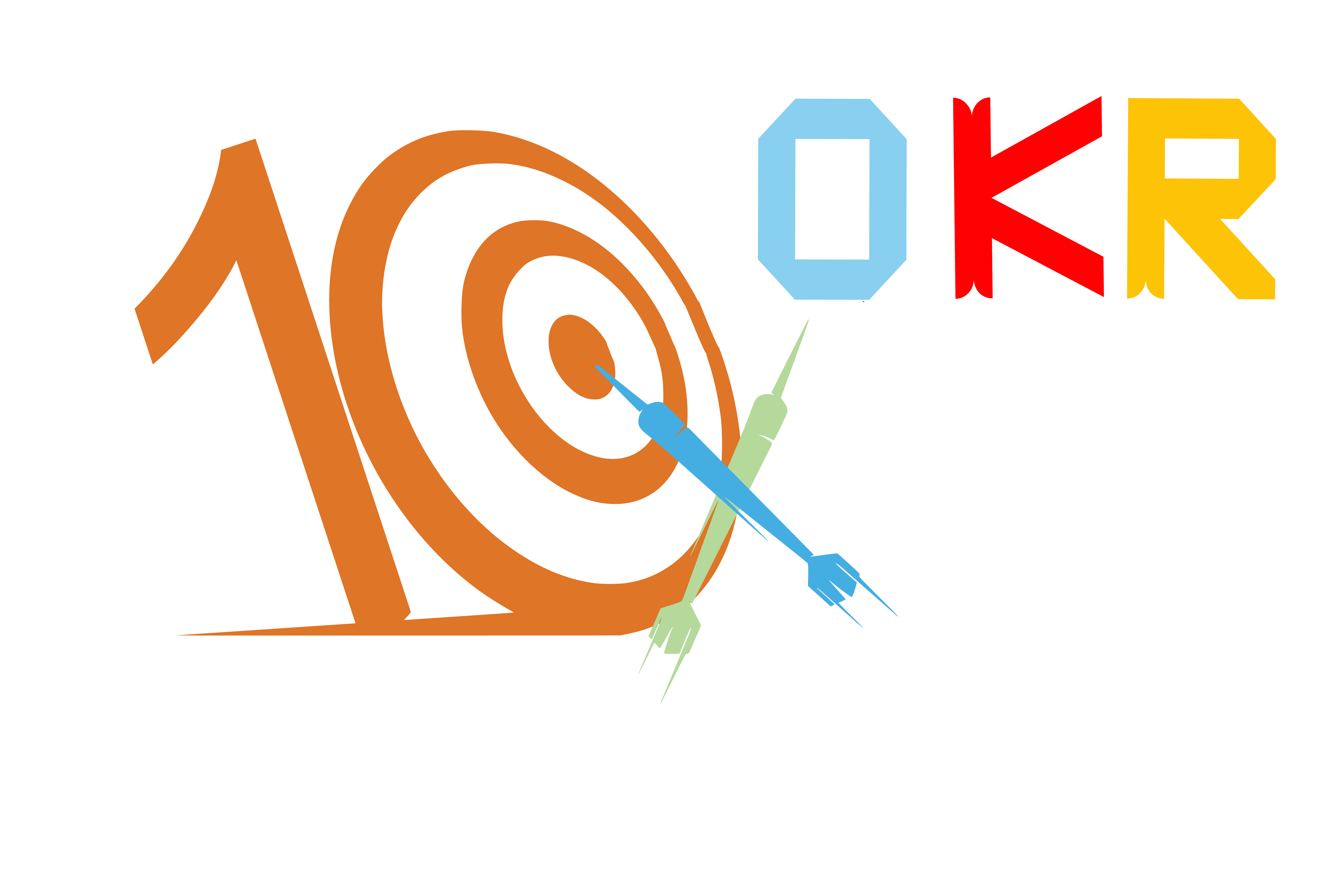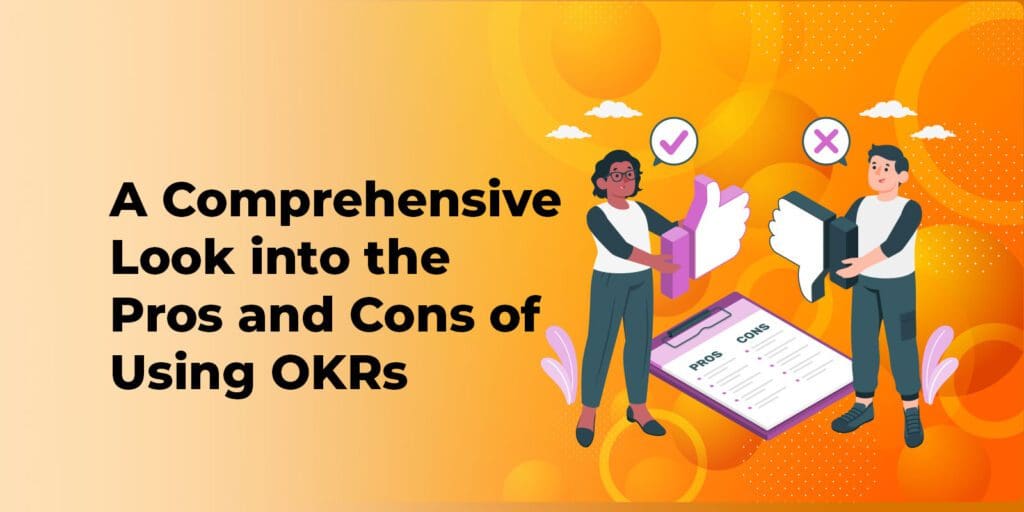Table of Contents
A Comprehensive Look into the Pros and Cons of Using OKRs
Setting achievable goals has become crucial to success in today’s fast-paced business world. You need a goal-setting framework that aligns with your business goals to achieve your objectives. This is where OKRs come in. Objectives and Key Results are referred to as OKR, and it is a goal-setting system that is gaining popularity among businesses. This guide will explore the pros and cons of using OKRs in your business.
What are OKRs, and How Do They Work?
OKRs are a framework that helps companies set and achieve their objectives. They were first introduced by Andy Grove, the former CEO of Intel, and have since been adopted by many companies worldwide. The OKR framework consists of two parts: Objectives and Key Results.
The Objective is the goal you want to achieve, and it should be specific, measurable, achievable, relevant, and time-bound (SMART). The Key Result is the metric used to measure the progress towards the Objective. It should also be specific, measurable, achievable, relevant, and time-bound.


For example, if your Objective is to increase sales by 50%, your Key Results could be to increase website traffic by 30%, increase the number of leads by 20%, and increase the conversion rate by 10%.
The Pros of using an OKR framework in your Business
Firstly, OKRs encourage businesses to set achievable goals. The framework requires firms to set specific, measurable, achievable, relevant, and time-bound objectives. This means that companies must set goals that are realistic and attainable.
OKRs also require businesses to set key results to help them achieve their objectives. These key results must be measurable and indicate whether the company is progressing towards achieving its objectives.
By setting achievable goals and clear key results, businesses can focus on achieving their objectives and save resources on unattainable goals. Another benefit of using OKRs is encouraging businesses to focus on what matters.
The framework requires businesses to set objectives aligning with their mission and vision. This means that businesses must prioritise their goals and focus on the ones that will significantly impact their success. Businesses can make the most of their resources and achieve their objectives efficiently by focusing on what matters.
OKRs also promote transparency and accountability within businesses. The framework requires businesses to share their objectives and key results with all employees. This means that everyone in the organisation knows the company’s goals and understands how their work contributes to its success.
By promoting transparency, businesses can create a culture of trust and collaboration within their organisation. OKRs also require regular check-ins and progress updates, which helps to hold employees accountable for their work and ensures that everyone is working towards the same goals.
There are several benefits to using an OKR framework in your business. OKRs encourage businesses to set achievable goals, focus on what matters, and promote transparency and accountability. By adopting this framework, businesses can become more efficient, productive, and successful.
The Cons of Using an OKR Framework in Your Business
While OKRs have proven effective in helping businesses achieve their objectives, there are some cons to using this framework. One of the main challenges is setting ambitious goals that take time to complete. This can lead to frustration and demotivation among team members.
Another area for improvement is that implementing the OKR system may take much time and effort. It requires a clear understanding of the business goals and the ability to break them down into specific, measurable objectives and key results. This can be a significant challenge for some businesses, particularly those just starting.
How OKRs Encourage Goal-Setting and Help You Achieve Your Objectives
Despite the challenges, OKRs encourage goal-setting and help businesses achieve their objectives. The OKR framework provides a clear direction and focus for the company, aligning everyone towards the same goals. It also encourages transparency and accountability, as each team member is responsible for achieving the company’s objectives.
OKRs also provide a sense of purpose and ownership among team members. When employees know what they are working towards and how their work impacts the company’s goals, they are more motivated and engaged. Productivity gains and improved performance may result from this.
Exploring the Pros and Cons of Setting Ambitious OKRs
Setting ambitious OKRs can be challenging, but it also has its benefits. Ambitious goals can inspire and motivate team members to perform at their best. They can also lead to breakthroughs and innovations that would not have been possible with more conservative goals.
However, setting overly ambitious goals can also lead to demotivation and burnout among team members. Setting ambitious goals while making sure they are attainable requires a delicate balance.
Case Study: OKRs as a Performance Management Tool for Marketing Teams and Team Members
OKRs are also an effective performance management tool for marketing teams and individual team members. By setting specific and measurable goals, managers can track the progress of their team members and provide feedback on their performance.
The OKR framework also encourages continuous learning and development. Team members can identify areas to improve and develop new skills and knowledge.


The Measurable Key Results of Implementing an OKR System
The measurable key results of implementing an OKR system are numerous. The OKR framework helps to align everyone in the company towards the same goals, leading to increased productivity and better performance. It also encourages transparency and accountability, as everyone knows their responsibilities towards achieving the company’s objectives.
OKRs also promote a culture of continuous learning and development, leading to a more skilled and knowledgeable workforce. Finally, the OKR framework gives the company a clear direction and focus, ensuring everyone is working towards the same goals.
How OKRs Fit into the Bigger Picture of Your Business Goals?
OKRs are just one part of the bigger picture of your business goals. They provide a framework for setting and achieving specific and measurable objectives but should align with your overall business goals.
Your business goals should be aligned with your mission and vision and should be specific, measurable, achievable, relevant, and time-bound. By aligning your OKRs with your overall business goals, you ensure that everyone in the company is working towards the same objectives.


Tips for Setting OKRs and the OKR Setting Process
Setting OKRs can be challenging, but following these tips can help make the process easier:
- Start by identifying your business goals and breaking them down into specific and measurable objectives.
- Ensure that your dreams are aligned with your company’s mission and vision.
- Set challenging but achievable goals that inspire and motivate team members.
- Use specific and measurable key results to track progress towards your objectives.
- Review and adjust your OKRs regularly to ensure they remain relevant and aligned with your business goals.
Conclusion and Final Thoughts on the Pros and Cons of Using OKRs in Your Business
In conclusion, the OKR framework is a powerful tool for setting and achieving business objectives. While there are some cons to using this framework, the benefits outweigh the challenges. OKRs encourage goal-setting, promote transparency and accountability, and provide a clear direction and focus for the company.
When setting OKRs, balancing challenging but achievable goals is essential. By aligning your OKRs with your overall business goals, you ensure that everyone in the company is working towards the same objectives. The OKR framework can be a valuable asset with the right resources and processes for your business.
Sign up for free to execute your goal-planning strategies starting today!



